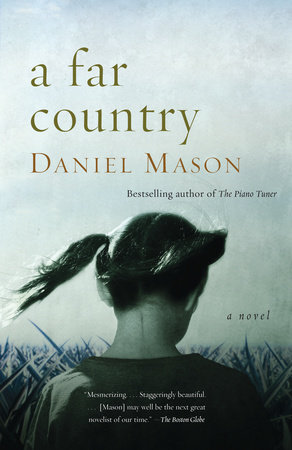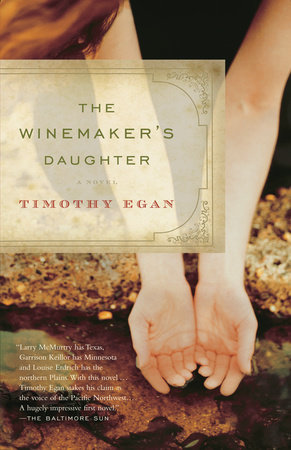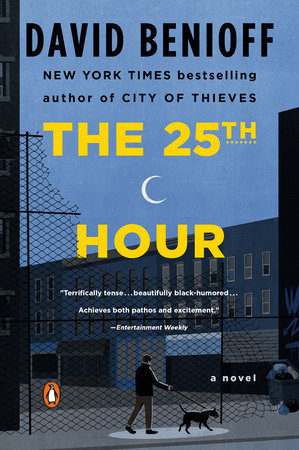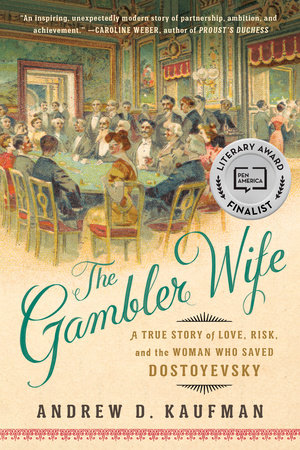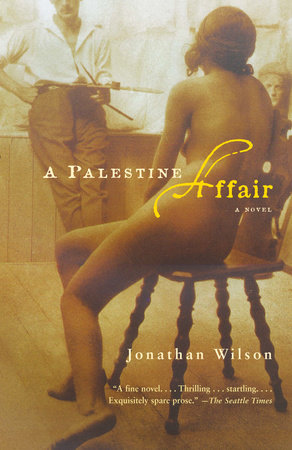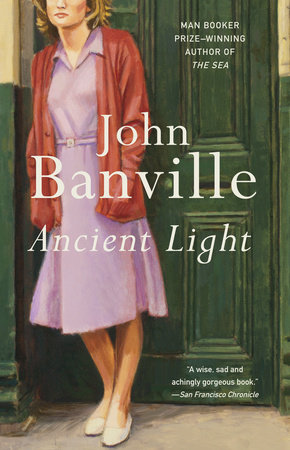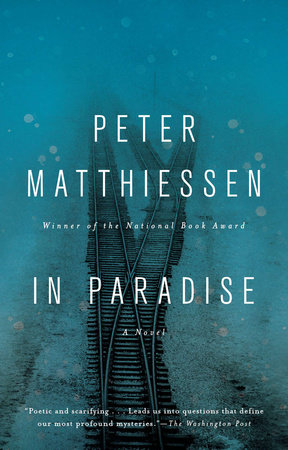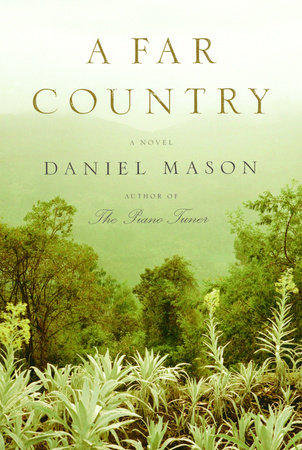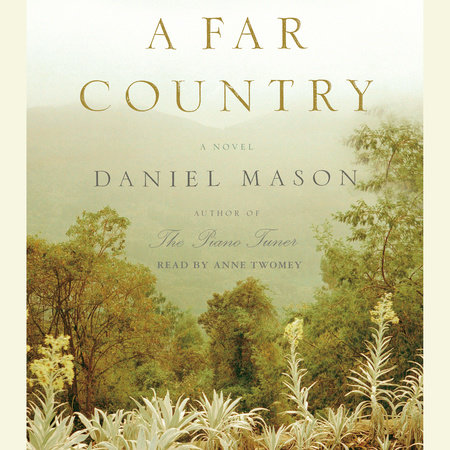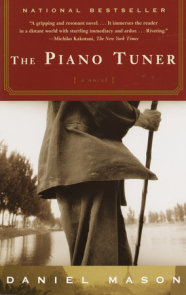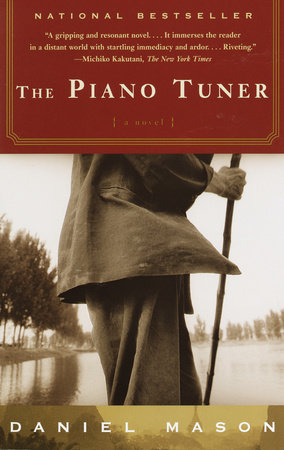Author Q&A
Q: How did you come to write A FAR COUNTRY? You once said that The Piano Tuner began for you with just a mental image of a piano in the jungle. Was there any such image behind A FAR COUNTRY?
A: This book, perhaps like many other books, came about accidentally. Around the time The Piano Tuner was published, I was interested in the Portuguese explorer Pedro Cabral, and wanted to write about an event that took place on his ship off the coast of South America. While I was in Brazil researching the story of Cabral’s voyage, I was struck by that country’s recent history of internal migration. Everywhere, I was meeting people who had fled the droughts and land struggles of the arid northeast to move to the cities. I had always been fascinated by stories of migration in the US, not only the current migration across the southern border, but internal migration as well, whether to the industrial cities of the northeast or the WWII-era displacement of entire towns from the Deep South to the shipyards here in the Bay Area. In Bangkok, where I worked for a year, much of the city relies on the labor of migrants from Burma and the Khorat Plateau. Today it is almost impossible not to read about the growth of urban slums all over the world. The rapidity of these migrations are having a impact far beyond demographics; I think that the abrupt shift between ‘traditional’ and ‘modern’ creates much of the tension and anger we see in so many societies.
I was fascinated by the psychological effects of such dislocation, what happens when someone leaves a traditional rural lifestyle for an urban one: what becomes of their skills of survival, what becomes of their language, what becomes of concepts as elemental as their sense of time? How do they cope with the isolation that occurs when the world you know has been taken away from you?
Q: Your main character, Isabel, is a fourteen-year-old girl. Why did you choose a character that is so different from you? Was it a challenge for you to capture her voice?
A: It is hard to answer why I chose her. I’ve heard other writers say that you don’t chose a character, a character chooses you. Something always felt wrong whenever I tried to tell the story from another perspective.
In retrospect, I think I was drawn to write about someone her age because it is an age of such change. Like any adolescent, she is trying to learn who she is; but her internal confusion is paralleled by the breakdown of her world. So when she has to leave her village, in many ways she leaves behind her childhood as well. I also liked the ambiguity of adolescence: at fourteen, she is still a child but increasingly faced with the responsibilities of an adult. This confusion, and these responsibilities, meant there was a lot to explore as a writer.
The hardest part about writing from her perspective was not that she is young and a girl, but that she possesses a kind of intelligence that is very hard to put to words, an intelligence similar to what I imagine Keats meant when he wrote about Negative Capability: an ability to accept uncertainty, to understand those philosophical truths that come through intuition rather than explication. She has that beautiful and strange intuition of a child, a visceral sense of the world which at times seems like a second sight. And yet she can barely read, she has seen the sea only once, she knows very little of the world beyond her home. This meant that I had to be extremely restrained in what I could have her do and think. This was by far the most difficult part of the book: to treat this character on her own terms; to resist my own temptation to explain her actions; to give agency to someone completely swept up by events out of her control; to create that kind of quiet dignity that we often overlook; to show the internal strength of someone who has been dispossessed of almost everything; to portray a child who does not naturally express herself through language, but through her actions and endurance. There is a great difference between silent and silenced. And yet as a writer, my only tool is my language. So it was a constant challenge to express her internal world as richly as possible, without betraying her own vision.
Q: Like The Piano Tuner, A FAR COUNTRY contains vivid physical detail, and yet the settings are extremely different. How was it to write about such different landscapes? Why did you decide to set this book in such an arid, harsh place?
A: I have always been drawn to arid places, not only for their particular beauty, but also for the people who cling so stubbornly to difficult land. I did not want to present Isabel’s home as an idyll. Hers is not a peaceful, easy existence destroyed by modernity. It is a violent, grueling existence complicated by modernity. Her life is materially better once she gets to the city: she no longer starves, she is no longer forced to follow the rains. So why this deep tie to the land? There is a wonderful line from St Exupery: “I shall never be able to express clearly whence comes this pleasure men take from aridity, but always and everywhere I have seen men attach themselves more stubbornly to barren lands than to any other.”
I hope this setting is reflected in the language of the book. The sentences are shorter, sparer. Isabel’s world is physical, experienced through sight and touch and smell, but rarely language. There is much more of an emphasis on what is there, as opposed to The Piano Tuner, where more space is given to how Edgar, the main character, perceives what is there. We are all products of the physical world around us, but I feel this is particularly true for Isabel. There are no books for her to escape into. Even the stories she grows up listening to have an immediacy: stories of the plants and animals of the place she lives in. So the details of the setting— the feel of the soil, the sharpness of the cane leaves, the real and mythological creatures who inhabit the thorn— are essential to understanding her, and what will happen to her when she is torn away from her home.
Q: You never name the actual location of the story, leaving the reader to imagine exactly what country they might be in. Why did you decide to leave this particular detail out?
A: I guess there are a number of answers to this question. Much of the story is based on events that are happening throughout the world; every day we read more about the widespread environmental destruction and violence, as well as the rumor of a better life, that is driving people to the cities. Initially, I was struck by particular events which happened in Brazil: namely, a series of massive droughts, which at times have led to a near evacuation of vast areas of the northeastern interior, and the subsequent migration of millions of people to cities in the south. At the same time, I did not want to write a novel of Brazil, nor of the current migrations within Mexico, which also served as a model. I had originally thought to name the location, to set it in São Paulo or Mexico City, but while writing, I found that the details of a real place had a tendency to overwhelm the narrative, which I wanted to keep as stark as possible, telling only what was necessary. I wanted to explore the psychological world of someone who is completely dispossessed, to try to tell the story on their own terms. And dispossession in this case meant not only dispossession of land, but dispossession of knowledge and history. To name a location meant to tap a particular place, with its own history and culture. It would have liberated the reader from Isabel’s powerlessness; the reader could have escaped into so many rich associations that come with a real place and history. I didn’t want this. I wanted to maintain the claustrophobia that Isabel feels, swept up in events beyond her control. If she can barely read, if she does not know what is happening outside her own world, I didn’t want us to know, either. So I tried to stay within her reality: focusing on the details of her home, the plants and animals, the smells, with only the faint shadows of the wealth and history of the modern world. When we do glimpse history, we do so only as she does, from its edges.
Q: Earlier you mentioned Isabel’s experience of language. At several moments in the book, she is frustrated by the limits of her words. Why was this important for a character who experiences the world so physically and speaks so little?
A: Isabel is not the only character facing the limits of her words. Around her, in the backlands and the slums, much of the anger comes from a sense of impotence, of voicelessness. At a number of points in the book, Isabel feels the need for words to describe the changing terror of her situation. She cannot write to Isaias what she feels in his absence. She does not understand the slang of the city. Unable to put words to the emptiness she feels, she searches for some explanation. Her language, the language which once served her, has become increasingly worthless.
Writing, I wondered if the inability to describe alienation somehow worsens that sense of alienation. One of the first times Isabel thinks about the loss of her old world is her reflection on the backlands words which are so useless in the city. What, she wonders, can thorn mean to someone who has not held it, not walked through it, not torn themselves on it? Isabel’s thoughts begin with a meditation on language. If she cannot explain what is happening to her, how can she understand it, let alone control it? What becomes of her when the words she once used are gone?
Q: A FAR COUNTRY is a novel very much about families and the bonds between a brother and sister. What made you decide to tell this story through the lens of that brother/sister relationship?
A: I was interested in the deep, almost ineffable connection that can exist between any two people. This is not confined to family, of course. When we fall in love, we so often say that it feels as if we have known the person for a long time. But family is usually where we first experience that sense of recognition, that profound sense of connection. Growing up together in such a remote place, the link between Isabel and Isaias is extremely strong, almost crossing over into the supernatural. Hence the early scene in the canefields, which seems like a miracle, the kind a saint might perform. I don’t know if this is a miracle or not. The real miracle, it seems to me, is the very real, yet inexplicable bond between two people.
There is something special in a brother-sister relationship, as opposed to that of a child and a parent. A brother and sister face the world in the same generation. Because they are closer in age, their relationship changes dramatically as they grow up. When Isabel is little, she worships her brother, “with the gaze she recognized in the old women before the statues of the saints.” By the end of the story (without wishing to give anything away) she is forced to realize who he is, not who she wants him to be.
Finally, one aspect of their relationship that interested me was how little is said sometimes. There is something about traveling alongside someone, about the profound experience of shared adventure, that is distinct from romantic or parental love. When Isabel’s world is destroyed, Isaias is the only one who knows what it was like. This is part of why his vanishing is so painful. She fears she has lost not just a brother, but the only person who really knew where she came from. Only in each other’s minds live the people they used to be.
Q: It’s interesting that in reading A FAR COUNTRY one gets the sense it is a story that could have taken place a hundred years ago or could be happening right now. Were you out to explore the idea of a certain timeless human experience?
A: I would love it if a reader comes away with that impression. The experience I wanted to explore was not just the timeless phenomenon of migration and physical displacement, but the fundamental shift that occurs when a worldview no longer makes sense. Isabel comes from a society in which certain events that to us are supernatural are commonplace to her. She sees ghosts in the thornscrub. When her family prays to Saint Michael, she imagines him quite literally, coming down “smelling of dust and feathers” to protect her village from landowner’s henchmen. She never questions her second sight or intuition, because it makes sense in the world from which she has come.
I remember meeting a man in the backlands who had a nearly encyclopedic knowledge of plants. It was extraordinary; I was traveling with a friend who is a botanist at the University of São Paulo, and not even our field guides could compete with the knowledge of this man (whose name was Milton, which is beautiful when one considers this is a story of being cast into a foreign world). But he had come back to the backlands after twenty years of construction work on the periphery of São Paulo. How did he make sense of that new world, now empty of the thousands of plants he once knew? How do you conceive of your own death, if for generations your family came and left this world on the same patch of land, are buried in the same graves, but you have been forced to leave? Would he wonder, if, in the place we go after we die, if he would have been able to find them? Would he fear being forced to wander alone forever, cut off from his line? There are countless questions like this, none of which I have an answer to, but it is a wonderful thought to explore through fiction.
There is another aspect to this timelessness which I think is important. The story begins very deliberately outside of specific time, before coalescing around Isabel’s life. I wanted this to reflect both the development of memory as well as how one imagines ones own family history. For it is the way our memories of childhood, once vague and dreamlike, condense around our explicit memories: the way we “appear” twice, so to speak, once physically, and again in our memory of ourselves. This is also true for our family lines. For all of us there is a point at which, going back in time, one’s family history disappears. Isabel’s friend Josiane asks this, ‘Do you think you just appeared out of nowhere, grew up out of the ground? You think you are made of dust?’ But Isabel doesn’t have an answer, just as if you asked a child how they came into the world, they wouldn’t know.
Q: Still, in some ways it’s very contemporary. Reading this, it is hard not to think of the millions of people all over the world who have been forced by circumstance to move from rural to urban settings in search of a way to survive. Poverty and migration are really humanized in this book and I wonder if part of your intention was to write a story that says something about this experience?
A: My interest was to explore a character who formed her understanding of the world in a rural village, isolated from modernity. By virtue of our times, this means poverty. I did not set out to write a novel about poverty; I set out to write about isolation. It was her psychological or spiritual world that fascinated me; her poverty was a consequence of this. She isn’t even aware that she is poor until she confronts the world around her.
Poverty is very difficult to write about. I wanted to portray it accurately without anesthetizing its attendant violence on one hand, nor romanticizing it on the other. The brutal realities of the lives of most people in the world are probably more shocking than fiction, and thus better treated by nonfiction. But poverty also forces people into extraordinary situations which demand a lot from the human soul. This seems to me to be fiction’s territory.
Q:A FAR COUNTRY, like The Piano Tuner, chronicles a journey, fraught with peril, away from home: an adventure that finds the main character forced to reinvent himself/herself in a new landscape. What draws you to this structure which in many ways is reminiscent of the classic stories of myth and fables with their stories about quests?
A: I don’t know. When I dream, my dreams usually are of someone traveling alone through a vast place. When I imagine death, I imagine it as an empty place, like a desert or a sea. I grew up in the American West, and I am most happy when I am moving through land with lots of space and sky. Maybe that is why I write stories like this. Even my short stories tend to be about lone people.
Q: The Piano Tuner has been adapted as an Opera and a play and is now also in pre-production as a film. What is it like for you to see your work adapted for the stage?
A: It’s wonderful to watch a work get its own life. Sometimes, strange as this may seem, it doesn’t even feel to me as if I wrote The Piano Tuner anymore. It seems like it came from a different person, who I knew once, but has gone away. It is familiar, but only in the way that a book you’ve read many times is familiar. It is great to see other artists come up with their own interpretations. Film is such a different medium, with entirely new potentials. And the Opera was fascinating. The composer, Nigel Osborne, was able to investigate questions of music in ways that my book could not— for example dissecting the component sounds of Burmese instruments, applying Burmese musical scales to classic Western patterns of counterpoint—in other words, searching for fundamental, universal similarities between disparate musical traditions. I learned so much from watching it.
Q: You began writing while in medical school, and I understand that A FAR COUNTRY was begun while you were still in school. I was wondering how that experience affected your writing. Are you working now as a doctor?
A: I graduated in 2004, but I have not yet done my residency. Now I am working on a new book, and I don’t know yet what I will do when I am done. But medicine affected my writing in many ways. It allowed me to meet people whose paths I probably wouldn’t have crossed. Isabel is in some ways based on a patient who I saw as a third year student, a girl who had come through hell to get to the United States, yet one of the most serene, dignified people I’ve ever met. I had already begun the book then. But this girl, in the words of Osman Lins (and the epigraph of my book) had that nearly inexplicable quality “we see in images of saints, the coarsest ones.” In a way, this book is an attempt to explain what that means.
Medicine also introduces one to the body in all its intimacies and all its failings. I think it is very difficult to write about disease, to know what goes wrong and what it feels like. Certain scenes in A FAR COUNTRY, particularly the horrible details of what happens to someone who is starving, come from medicine. I wanted to treat hunger not as something abstract or political, but something physically real.
Finally, there is a specificity of language in medicine which I admire very much. There is the hope that when one doctor communicates to the other, he or she can convey a patient’s condition so perfectly that the other doctor may not even need to go into the room. Of course this isn’t really possible, but as a writer, I find that faith in language very beautiful. It is like the centuries-old philosophical search for the perfect language, a language which all thought can be communicated without flaw, so that the listener can form a perfect image of the speakers words. Of course medicine cannot do this. But it tries, and this is inspiration enough. At the beginning of every discussion of a patient, there is a single sentence where one tries to convey the essence of a patient, and what has gone wrong. That is the kind of sentence I want to write one day.
Q: Your first novel The Piano Tuner was an international bestseller, translated into almost thirty languages. How did that impact your life and work?
A: I don’t think it has changed much. Every once and a while I meet someone who has read my book, but not so often. My days are different now that I am not in school any more. I have more time. It is very strange to spend so much time in an imaginary world.
